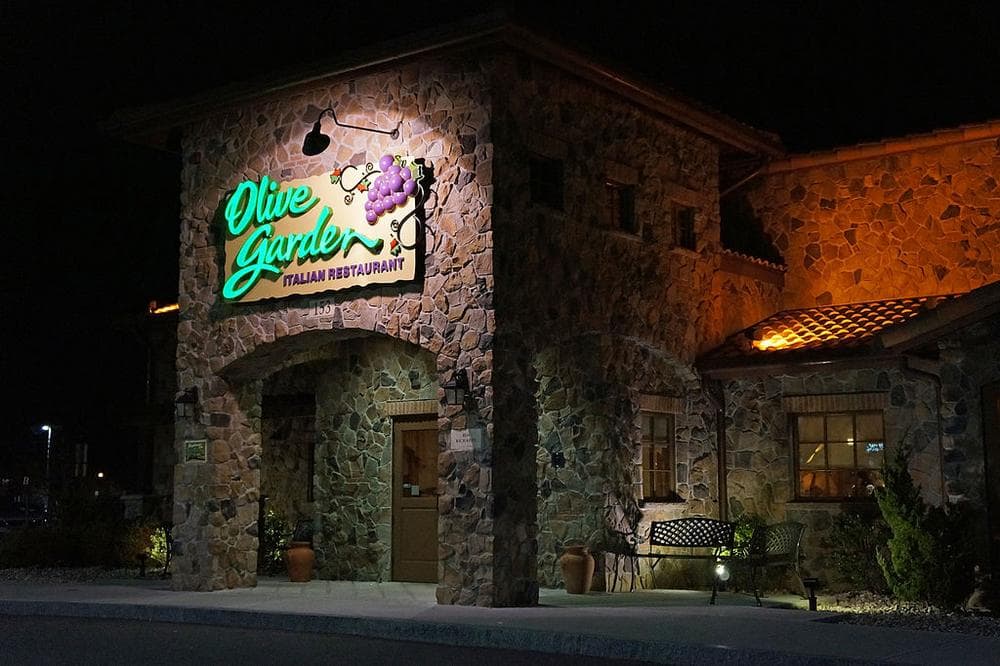Advertisement
When Your Salad Turns Poisonous

If you're a hungry diner looking for culinary creativity, you probably aren't headed to Olive Garden. The franchise's offerings are predictable and dependable: no skimping on the chicken parm or bottomless breadsticks. But scores of people may have left Olive Garden establishments this summer with a surprise.
Starting in mid-June, more than 500 cases of cyclospora infection were reported in the U.S., with Texas, Iowa, and Nebraska residents being hit the hardest. Symptoms of the one-celled parasite include watery diarrhea and fatigue; the rest of the unappetizing information can be found on the CDC's page.
On Tuesday, the FDA provided an update confirming that cases in Iowa and Nebraska were linked to contaminated salad mix from Taylor Farms of Mexico, which supplies restaurants like Olive Garden and Red Lobster. From the FDA report:
The FDA traceback investigation has confirmed that the salad mix identified by Iowa and Nebraska as being linked to the outbreak of cyclosporiasis in those states was supplied to restaurants in those states by Taylor Farms de Mexico, S. de R.L. de C.V., a processor of foodservice salads. The FDA traceback investigation found that illness clusters at restaurants were traced to a common supplier, Taylor Farms de Mexico, S. de R.L. de C.V. The restaurants in Iowa and Nebraska include Olive Garden and Red Lobster, both of which are owned by Darden Restaurants.
The FDA did not specify how many cases were linked to Olive Garden. Customers who fell ill after eating at Olive Gardens have filed lawsuits against Darden Restaurants, the parent company of the chain, in Ohio, Texas, Iowa, and Nebraska.
So, the source of the 238 cases in Iowa and Nebraska has now been pinned down, but what about the hundreds of other cases in Texas and 13 other states? What's causing the holdup?
One problem is immediately obvious: determining the causes of food poisoning can be tricky. The symptoms of cyclosporiasis take about a week to show up, making it hard for the afflicted to remember which foods might've caused their illness. What did you have for lunch last Thursday? I sure couldn't answer.
The other complicating factor is how crucial it is that the FDA and state health investigations are absolutely accurate. A false accusation could severely damage public trust. Just look at the 2008 salmonella outbreak that affected over 1,300 people in the U.S. FDA officials initially suspected tomatoes, causing restaurants and grocery stores nationwide to recall the produce. Later, when they failed to find evidence of widespread contamination, they amended that perhaps peppers were to blame. But the damage had already been done. The scare cost the tomato industry up to $450 million, estimated Tommy Thompson, former secretary of the Department of Health and Human Services.
Beyond costs, if the federal food agency takes too long to figure out a root cause, it increases the chances of people unwittingly eating dangerous foods. ABC News reports:
"It's a fine line that you need to walk when you're doing epidemiological investigations," said Barbara Kowalcyk, founder of the Center for Foodborne Illness Research and Prevention. "If you implicate a particular product too soon, then there's a negative impact not just on that product or company but on the entire industry. On the other hand, if you wait too long, there's a potential for people to unnecessarily get sick."